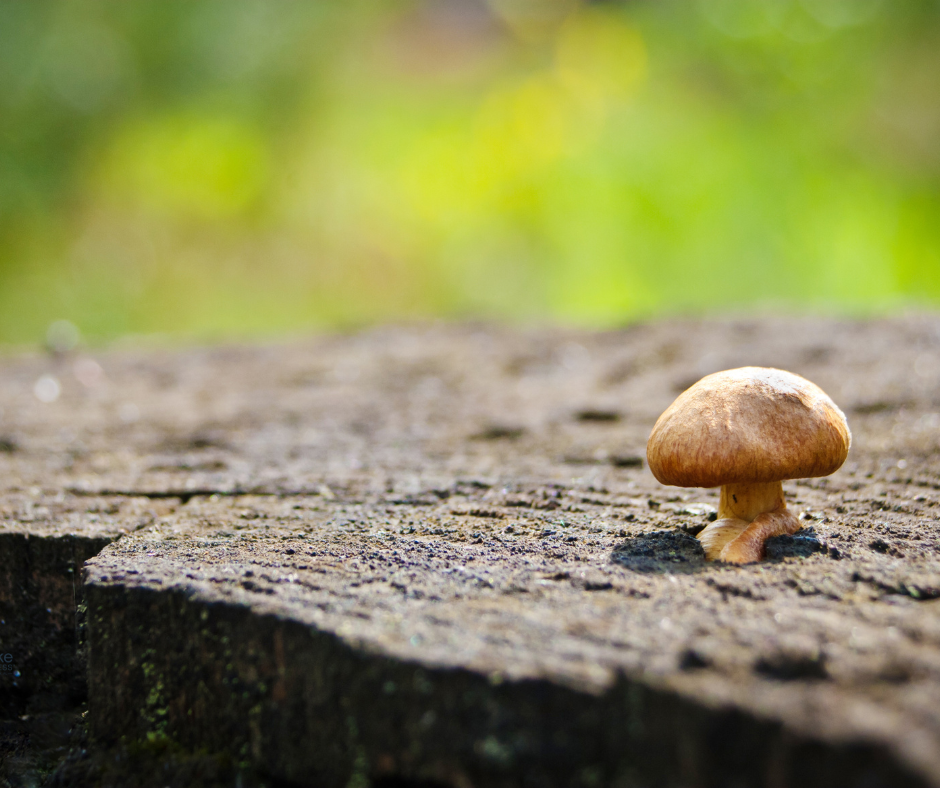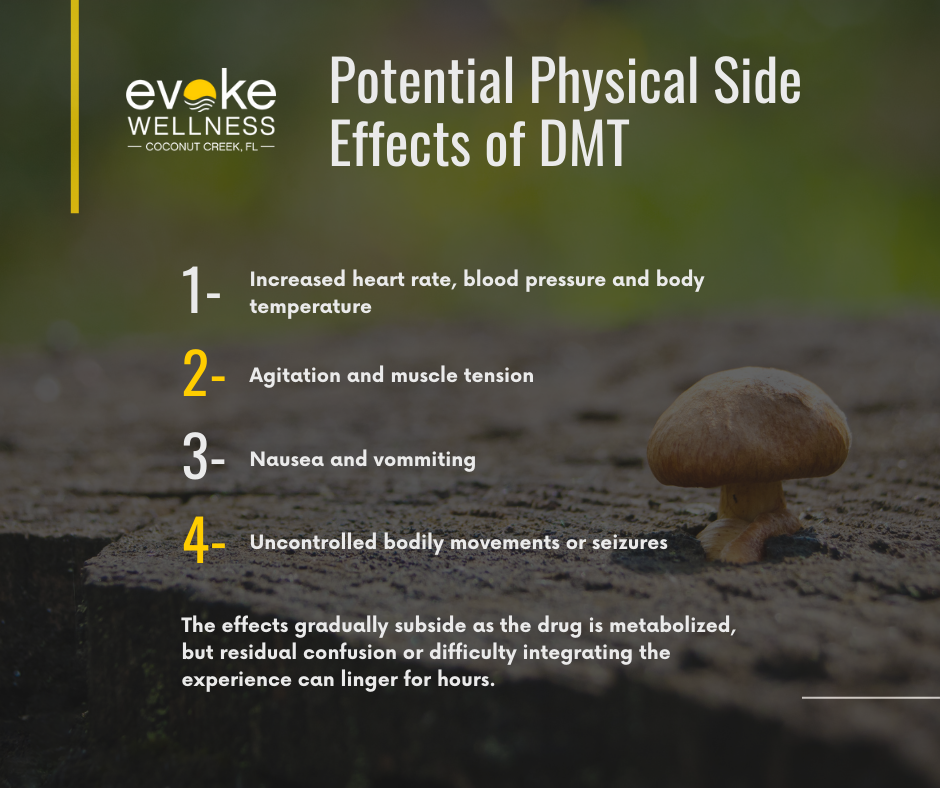As you start down the path of recovery, it’s important to understand the substances you’re walking away from. One of the most mystifying and misunderstood is DMT. While use of this intense psychedelic has risen in recent years, many don’t comprehend its effects or potential for addiction. Through examining the science behind DMT, its prevalence, and treatment options like family program and cognitive-behavioral therapy, you can gain clarity. Walk into your recovery informed and empowered to create the life you deserve.
If you or a loved one is struggling, help is available today. Call (833) 969-3318 to speak with our compassionate team, or reach out online and schedule an appointment to begin a healing journey.
What Is DMT?
N,N-Dimethyltryptamine, or DMT, is a potent hallucinogenic tryptamine drug. Occurring naturally in plants and animals, it produces intense psychedelic effects.
DMT’s Effects
- Visual and auditory hallucinations
- Feelings of euphoria and oneness
- Altered perception of time and reality
How It’s Used
DMT can be consumed in various ways:
- Inhaled as a vapor when smoked
- Ingested orally in plant-based brews
- Injected intravenously (rare)
Potent but Brief
DMT induces a short but profound “trip”. Its effects typically last 5 to 30 minutes, though users report experiencing what seems like hours or lifetimes in these altered states.
Legal Status
While DMT occurs naturally in trace amounts in the human body, it is classified as a Schedule I controlled substance in the United States due to its high potential for abuse and lack of accepted medical use.
A Brief History of DMT
Origins & Discovery
DMT, or N,N-Dimethyltryptamine, has been used for centuries by indigenous Amazonian tribes in shamanic rituals and spiritual practices. This powerful hallucinogenic compound is found naturally in many plants and even some animal species.
Rise in Popularity
In the 1960s counterculture movement, DMT gained wider attention and popularity as a psychedelic drug. Researchers like Rick Strassman conducted studies exploring its mind-altering effects and potential therapeutic applications.
Modern Research
Today, while still illegal in most countries, DMT remains a subject of ongoing scientific study. Scientists are investigating its impact on consciousness, neurological functions, and potential medical uses for conditions like depression and addiction. With strict controls, DMT research continues to shed light on this enigmatic substance’s history and future.
How Do You Use DMT?
Vaporizing the Crystals
The most common way to consume DMT is by vaporizing the freebase crystals in a glass pipe or vaporizer. Heat is applied to the crystals, releasing the vapors which are then inhaled.
Preparing an Ayahuasca Brew
DMT can also be consumed as part of an ayahuasca brew made from various plants like Psychotria viridis and Banisteriopsis caapi. This traditional Amazonian brew produces a longer, more immersive psychedelic experience.
Intramuscular or Intravenous Injection
While less common, DMT can be dissolved in water and injected intramuscularly or intravenously for an extremely rapid, intense onset. However, this route carries increased health risks.
No matter the method, DMT produces extraordinarily vivid hallucinations and a complete dissociation from reality lasting 5-20 minutes when vaporized and up to several hours with ayahuasca. Proper dosage, setting, and supervision are crucial for a safe experience.
How Does DMT Affect You?
Rapid Onset of Intense Effects
DMT’s mind-altering effects kick in rapidly – within a minute after consumption. This powerful hallucinogen triggers an intense psychedelic “trip” that typically lasts 30-45 minutes when smoked or vaporized. The onset is more gradual when ingested orally, but the effects are longer-lasting.
An Immersive Psychedelic Experience
Users report vivid hallucinations, distortions in visual and auditory perception, and a sense of transcending physical reality. DMT can induce profound psychological effects, including euphoria, anxiety, panic, and psychosis-like symptoms during the trip. The experience is often described as intense and overwhelming.
Potential Physical Side Effects
Beyond the psychological impact, DMT may cause physical side effects like:
Is DMT Addictive?
DMT or dimethyltryptamine is a naturally occurring psychedelic compound found in many plants. It produces intense, profound hallucinations when ingested but the effects only last 5-15 minutes due to rapid metabolism in the body. According to Stanford’s Human-Centered AI group, DMT is classified as a Schedule I drug under the Controlled Substances Act due to its psychedelic properties.
No Physical Addiction
There is no evidence that DMT causes physical addiction or compulsive drug-seeking behavior. According to Evoke Wellness, DMT does not produce a withdrawal syndrome associated with addiction. This makes addiction treatment and recovery more achievable compared to physiologically addictive substances.
Potential Psychological Dependence
However, DMT’s powerful hallucinogenic effects could potentially lead to psychological dependence or substance use disorder in some individuals. As per the DSM-5, regular DMT use exhibiting several symptoms like craving, inability to cut down, and continued use despite consequences may indicate a substance use disorder requiring professional treatment.
Need for More Research
More research is still needed on DMT’s effects and therapeutic potential due to legal restrictions around it. But some studies suggest it could help treat conditions like anxiety, depression, and addiction when administered under medical supervision by facilitating insights. Effective treatment can address any underlying mental health issues driving substance use.
DMT Safety Tips
Know the Substance
DMT (N,N-Dimethyltryptamine) is an incredibly potent, naturally occurring psychedelic compound. Its effects are intense but short-lived – usually 30-60 minutes. Educate yourself on dosages, duration, and potential risks before use.
Set and Setting
Create a safe, comfortable environment free from potential hazards. Have an experienced “sitter” present to ensure your wellbeing. Avoid operating vehicles or machinery until effects have fully subsided.
Mindset Matters
Approach DMT with respect, reverence, and an open yet grounded mindset. Avoid use if experiencing severe anxiety, psychosis or mania. Integrate the experience after emerging from the DMT realm.
Purity and Source
Only use DMT from trusted, reputable sources. Impure or adulterated products heighten risks. Test kits can identify adulterants but cannot confirm purity levels. Exercise caution.
DMT and Therapy Options
Individual Therapy Program
DMT users often require an individual therapy program to address underlying mental health issues. One-on-one sessions allow therapists to develop a personalized treatment plan. They can apply proven techniques like cognitive behavioral therapy to change negative thought patterns.
Family Therapy
Family therapy is vital for DMT addiction recovery. It rebuilds trust and communication within the family unit. Loved ones learn about the user’s experiences in a supportive environment. This strengthens their understanding and ability to prevent relapse.
Group Therapy
In group therapy, DMT users share their struggles with peers working through similar issues. This reduces feelings of isolation and shame. Group members provide accountability while celebrating milestones together. Counselors guide discussions on coping strategies.
Psychotherapy Program
A comprehensive psychotherapy program is recommended for chronic DMT users. Psychotherapy explores the root causes behind substance abuse through in-depth analysis. Patients gain self-awareness to avoid future drug-seeking behavior.
Conclusion
You now have a thorough understanding of DMT, including its effects and risks. While powerful psychedelic experiences may tempt some, it’s crucial to carefully weigh the potential dangers. If choosing to use DMT, take steps to minimize harm, like having a trustworthy guide and safe setting. For those struggling with substance misuse, there are many evidence-based treatments, like cognitive behavioral therapy, group support, and family involvement. With compassion and determination, a fulfilling life free of addiction is possible. Stay informed, be responsible, and reach out for help when needed – a brighter future awaits.
Begin Your Journey With Evoke Wellness at Coconut Creek
Evoke Wellness at Coconut Creek is a full-service addiction treatment facility serving Florida residents. We base each of our programs on the individual’s severity of symptoms and use a combination of evidence-based therapies and holistic approaches to address the needs and recovery goals of the patient.
If you or a loved one is struggling, help is available today. Call (833) 969-3318 to speak with our compassionate team, or reach out online and schedule an appointment to begin a healing journey.



